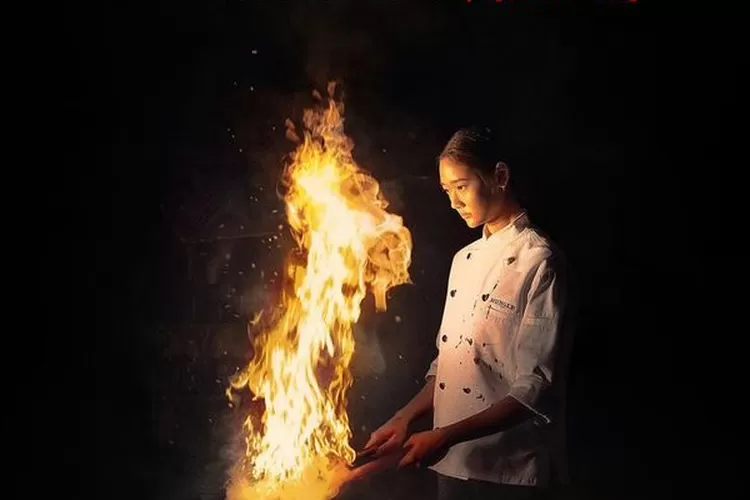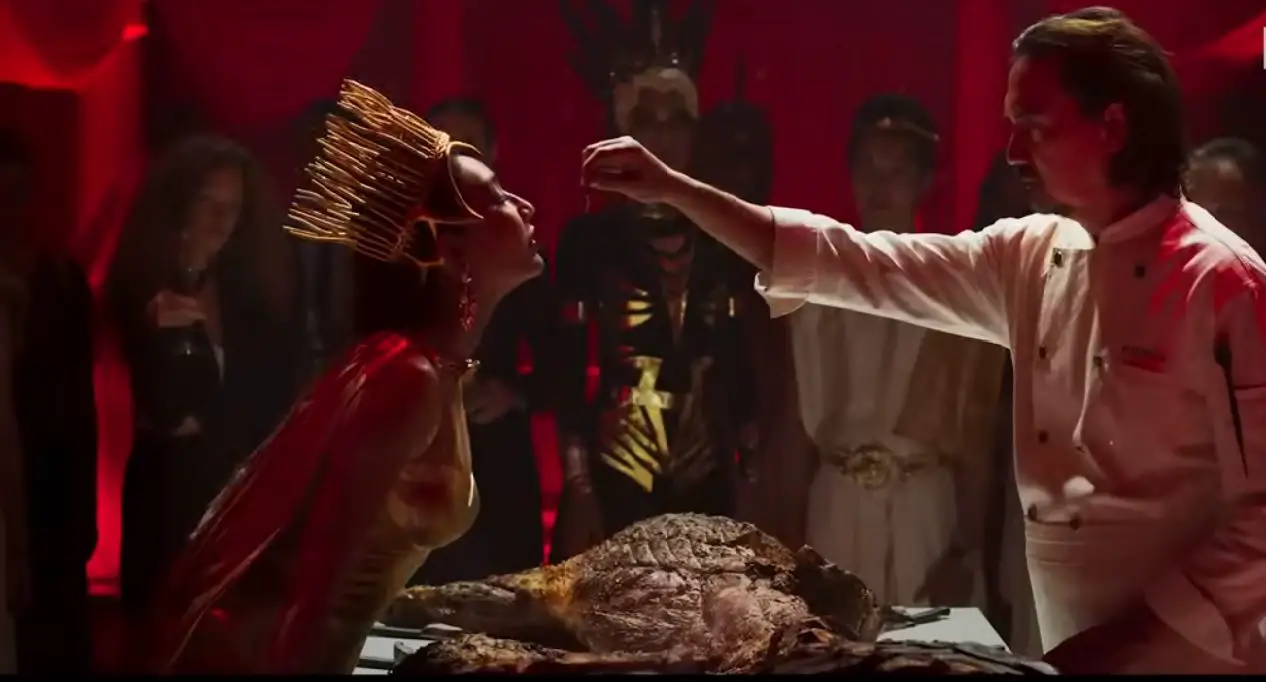“Eat the rich” has gone from a rallying cry to a catch-all for the growing class inequality. So naturally, movies have quickly seized upon this as, despite the divide, it’s the one thing almost everyone agrees with. But, unfortunately, some films take the sentiment and merely add some garnish to the appetizer and call it a meal.
Sitisiri Mongkolsiri’s Hunger is one such movie. Written by Kongdej Jaturanasamee, the film looks at a young noodle cook Aoy (Chutimon Chuengcharoensukying), and her ascension from the lower depths to being a chef for the elites. It is, in many ways, a fable, looking at how Aoy slowly-very slowly-begins to realize that, spoiler alert: capitalism poisons everything it touches.

While that may be true, and I applaud movies that say so, they should have a little more substance. If not, then they should at least be more entertaining. Unfortunately, Hunger is relatively empty despite some visual flourishes and clever metaphors.
Kongdej’s script is many things, but subtle isn’t one of them. While not necessarily a bad thing, many movies, after all, have all the subtly of a 3-ton anvil, and it doesn’t matter, but with Hunger, the film seems to drag and drag to the point that we’re left with pleading for the dessert so we can ask for the check.
The most irritating thing about Hunger is how conversations stop just as they start to get interesting. Characters will talk right up to almost making a point, and then Sitisiri will have them nod solemnly and stare off into the distance while T-thawat Taifayongvichit’s camera frames them in cool crisp greys. In as much as Sitisiri’s film has something to say about how the desire for success can often consume us, Kongdej’s script gives its characters so precious little in the way of either a mind or personality.
Hunger is, for the most part, a lifeless movie. Chutimon’s Aoy is a simple woman; she is tired of being poor and wishes to be, in her own words, “special.” She’s tired of working the wok at her father’s noodle shop and wants a better life. But, oddly enough, she doesn’t seem to want a better life for her family.
Soon a customer, Tone (Gunn Svasti), compliments her on her cooking and gives her a card for the elite and infamous restaurant, “Hunger,” owned by the legendary and infamous chef Paul (Nopachai Jayanama). Once Aoy steps into the kitchen, it becomes evident that Sitisiri frames Hunger as a thriller.

Much of the drama of Hunger stems from Nopachai’s chef Paul who resembles R. Lee Ermey’s drill sergeant from Full Metal Jacket. He runs his kitchen like a platoon, with almost as much bloodshed. He sees much of himself in Aoy, so he is hard on her. Neither Kongdej nor Sitisiri explore the paternal relationship or show how it parallels Ayo and her father. They would have to build a relationship between Aoy and her father.
Ayo and her father hardly talk, and yet they are supposedly close. We are told this but are never really shown it. Finally, when he has a heart attack, she rushes to the hospital, where Sitisiri tries again to show the difference in the world between the rich and the poor. But it’s all so tame and dry.
Contrast this with the moments that work, such as how Sitisiri and T-thawat shoot the decadent eating Chef Paul’s dishes. Close up of their mouths, the food drenching down their chins, like blood, as they tear into the carnage. The movie even has a line about how the rich can never be satiated; they eat because they are bored, while the poor eat merely to live. T-thawat’s camera captures every tender and juicy morsel of food with loving detail that I found myself hungry.
Whatever issues Hunger may have, the visuals and how T-thawat captures food aren’t one of them. He frames each succulent morsel with such love and cares that it’s enough to make one salivate. If only Sitisiri’s direction and Kongdej’s script had given him something to work with when not shooting the preparation of the dishes.
For once, Hunger steps out of the kitchen and away from the food; it becomes tiresome. It’s a curious artifact of Kongdej’s script that, for all its ponderous contemplations about the gaping chasm between the elites and everyone else, never seems all that interested in the actual working poor. Though we do get a brief montage of houseless people and the scraps, they eat to survive towards the end.
Hunger is far too enamored with showing us how vacuous and hollow the rich are. Granted, Sitisiri and T-thawat try to balance this out by showing us scenes of the lower classes eating food and how for them, it is usually less of an event and usually something to eat as fuel at the end of a long day’s work.
The score sometimes serves as an eerie omen of things to come, while others are overbearing and telegraph the emotion we’re meant to feel. Yet, at times, when paired with T-thawat’s footage of a meal being prepared, it is as enticing as it is compelling. Sadly, the overstuffed runtime makes it so that every cooking montage begins to have diminishing returns.

Both Chutimon and Nopachai do what they can. They bring a glimpse of an inner life to these characters that neither the director nor the writer seems interested in. But much of what makes so much of Hunger watchable outside the food are these two morosely anchoring the movie as they glare at each other from across the kitchen.
However, they are no match for the self-defeating self-seriousness of the film’s tone. Hunger is ripe with dramatic moments, but they are played far too straight and clinically to be entertaining. After all, this is a movie where a sous-chef stabs his boss in the gut with a paring knife, and yet it’s done with a matter-of-factness that drains the scene of any semblance of tension.
Hunger is a movie filled with empty calories. Swaths of the film delight and engage, but the blandness of the dish overwhelms the spices.
Images courtesy of Netflix
Have strong thoughts about this piece you need to share? Or maybe there’s something else on your mind you’re wanting to talk about with fellow Fandomentals? Head on over to our Community server to join in the conversation!

